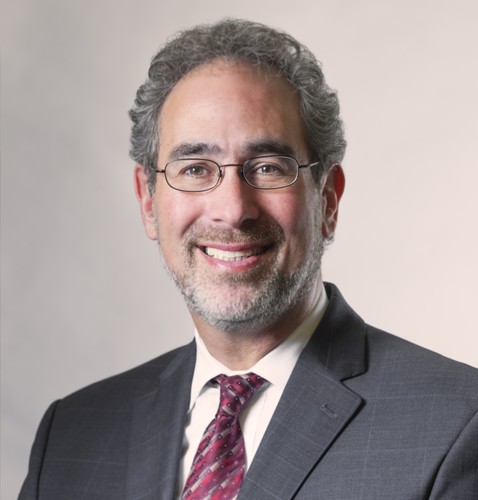Breaking the Cycle: Fostering Addiction Recovery and Avoiding Disinheritance Through Thoughtful Estate Planning
October 18, 2023 |
Trusts and Estates Blog
“That’s it! He’s out of the Will!” … “He’s just going through a stage… he stopped using for a whole week and he’s a different person.” … “That liar will NEVER change.” … “I’m sure financial security will stop her from using.”
The truth of the matter is that our loved ones suffering from the disease of addiction will be unable to break the cycle of perpetual relapses and suffering until they experience an event sufficient enough to bring about a moment of clarity and humility resulting in an honest desire for change. It is when that limited window of opportunity opens that the loved one’s family and community should be prepared to assist in implementing a plan of action to ensure success in rehabilitation, treatment and recovery. This sort of change cannot be brought about by begging, shaming, reasoning, emotional pleading or implementing tough love, including disinheritance resulting from anger, fear or retaliation. While families must refrain from stoking the fire of addiction by enabling a loved one’s habits through countless methods of well-intentioned acts, implementing certain estate planning strategies can avoid providing direct resources to family members suffering from active addiction while ensuring that carefully managed funds will still be available when help is desired and honestly sought.
Family members, especially parents, have difficulty in addressing how to plan their estates when a loved one (i.e., child, grandchild, sibling, etc.) is struggling with the disease of addiction. While most clients do not wish to disinherit a love one because of the hope that a solution will be found, they struggle with how to ensure success without bequeathing additional resources to fuel the addict’s destructive actions. A proper estate plan can help establish certain benchmarks in order to ensure that a bequest is properly safeguarded against abuse, while at the same time providing resources to the intended beneficiary for both their personal needs and to assist with their struggles with addiction.
Disinheriting a child or loved one could create conflicts among children and other family members, potential delays and costs due to legal challenges in the implementation of an estate plan, and/or resentments that might fuel or accelerate the self-destructive path of one suffering from addiction.
One of the basic ways that an estate can be planned to avoid disinheritance is to create a trust (either during a parent’s/grandparent’s lifetime or upon death) which could include various provisions tying the beneficiary’s receipt of principal or income distributions to the beneficiary meeting and maintaining certain benchmarks. These trusts have sometimes been referred to as “Incentive Trusts”, “Spendthrift Trusts”, “Addiction Trusts” or even “Recovery Trusts.” Usually, the criteria will be based on what efforts the beneficiary undertakes to seek treatment for the physical addiction, and also to ensure that he or she continues to maintain sobriety in recovery. A Recovery Trust could be structured to tie any principal or income distributions to completing or maintaining one or all of the following milestones:
- Detox and Continued Sobriety -- Commitment to seek recovery from the physical symptoms which could be followed up with periodic blood/urine screening to ensure ongoing sobriety (as recommended in consultation with a counselor).
- A Treatment Plan -- Commitment to an in-patient/out-patient program followed by group/individual therapy to assist with the mental addiction which can be verified by reports from physicians and/or counselors with specific experience in addiction care.
- A Recovery Plan -- Commitment to a 12-step program, mindfulness, readings, yoga, etc., to bring about a lifestyle change to help ensure long-term sobriety. Being part of a fellowship and sharing the common peril of addiction is key to ensuring long-term sobriety. An addict left to their own devices will most likely relapse.
A Recovery Trust would be administered by a trustee who would be granted the responsibility and authority to ensure that any distributions would only be made to or for the benefit of a beneficiary to: (a) seek treatment and recovery as would be deemed necessary and/or advisable by the trustee after consultation with professionals who may or may not be directly counseling the beneficiary; (b) ensure that a program of recovery is being maintained, as evidenced by periodic chemical screening and obtaining reports from counselors or other medical professionals; and (c) provide for the personal needs of the beneficiary, especially in early sobriety (or in cases of relapse). This is not an exhaustive list, but rather an idea of some of the basic expenditures which the trustee can be authorized to satisfy. The Recovery Trust should also reflect that, if it is the desire for the trustee to independently verify health care information and test results directly from the health care providers, the beneficiary be required to execute such HIPAA authorizations as a precondition to receiving any benefits from the trust.
A Recovery Trust should be worded in such a way as not to be unduly burdensome or punitive to the beneficiary, but rather to provide a financial incentive to seek out assistance if they have not done so already, and to ensure that sobriety and continued recovery are maintained. The Recovery Trust can be drafted in such a manner that if a program of recovery is maintained over a period of time, the trustee could begin “sprinkling” unrestricted principal distributions to the beneficiary with the hope that the trust could eventually terminate. While the trust can provide for the termination and final distribution to the primary beneficiary upon an adequate showing of a long-term commitment to recovery (as can be measured by established criteria or by directions and guidelines for the trustee), the trust can also provide for the withholding of payments or the termination of the trust in favor of alternate beneficiaries should the primary beneficiary fail to meet the stated objectives within a designated period of time or upon the occurrence of a significant event (i.e., conviction of a crime related to the addiction), within the sole and absolute discretion of the trustee or with a majority consensus of certain family members or counselors.
The designation of the trustee also requires some thorough consideration and discussion. While family members are sometimes appropriate parties to undertake a trustee position for a trust for children under a certain age, the same people may not be appropriate to assume the fiduciary responsibilities when the unique challenges are that of a family member in crisis. Sometimes the appointment of a third party (i.e., a non-family member) serving in the role of either an independent trustee or co-trustee serving with a family member will ease the burden of a loving family member or close family friend making difficult decisions when faced with a brother, sister, child or grandchild struggling with addiction.
At the end of the day, individuals suffering from addiction need to find the ability within themselves to surrender to the fact that they are suffering from a disease, seek treatment and settle into long-term recovery. The financial incentives and the availability of funds offered under a properly drafted Recovery Trust can remove one major hurdle (or excuse) that might prevent an individual from seeking such assistance.
Professional planners must appreciate that this is a very difficult and private topic for most clients to discuss, especially if you are counseling a client with whom no prior relationship existed. However, we must comfort clients with the concept that these issues are more common than most people think. Clients must realize that it is important to address these issues rather than ignore the fact that addiction is prevalent in society and that providing unrestricted resources is dangerous in the hand of one that suffers from this disease. Recovery from the mental and physical symptoms of addiction is possible, but the disease is chronic and a perceived remission is only subject to a daily reprieve contingent upon an honest and vigorous program of treatment and recovery. As such, the estate plan needs to be flexible enough to meet the beneficiary's ever-challenging and changing needs..
David E. Siegfeld is a partner with Lippes Mathias LLP and the firm’s trusts and estates practice team co-leader. He counsels businesses and individuals on a wide range of business transactional and planning matters; estate planning, litigation, and probate matters; business succession planning; and commercial and residential real estate transactions. www.lippes.com.
Disclaimer: The information in this post is provided for general informational purposes only, and may not reflect the current law in your jurisdiction. No information contained in this post should be construed as legal advice from our firm or the individual author, nor is it intended to be a substitute for legal counsel on any subject matter. No reader of this post should act or refrain from acting on the basis of any information included in, or accessible through, this post without seeking the appropriate legal or other professional advice on the particular facts and circumstances at issue from a lawyer licensed in the recipient’s state, country or other appropriate licensing jurisdiction.
Related Content

Events
West Palm Beach Trusts & Estates Seminar
January 22, 2025


Press Releases
86 Lippes Mathias Attorneys Recognized in the 2025 Edition of "The Best Lawyers in America©"
August 15, 2024


Trusts and Estates Blog
Planning for Peace of Mind: The Crucial Role of Advanced Directives in Medical Decision-Making
May 16, 2024


Trusts and Estates Blog
Testamentary Guardianship: Safeguarding Your Child's Future Through Estate Planning
April 24, 2024

TAGS
TRUSTS & ESTATES
PRACTICE TEAMS
TRUSTS & ESTATES



